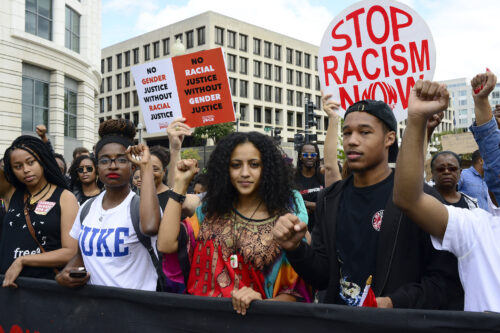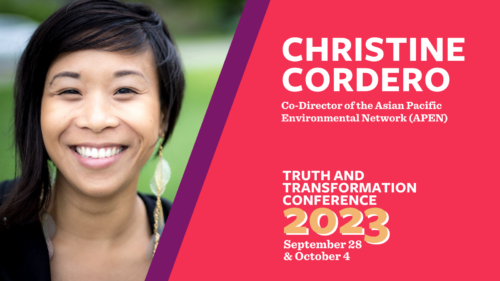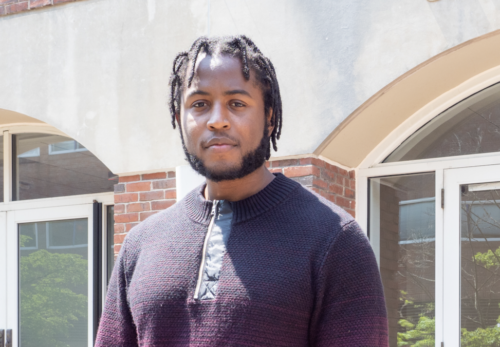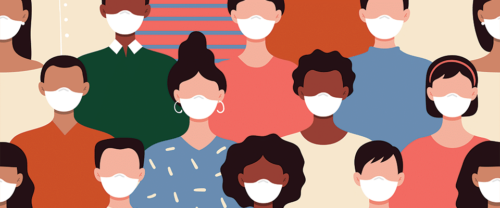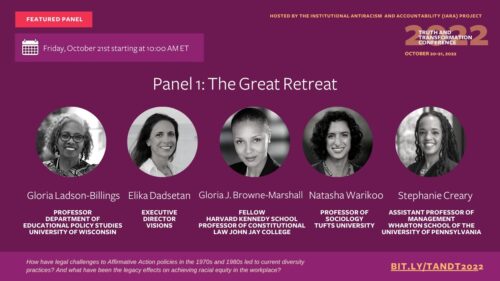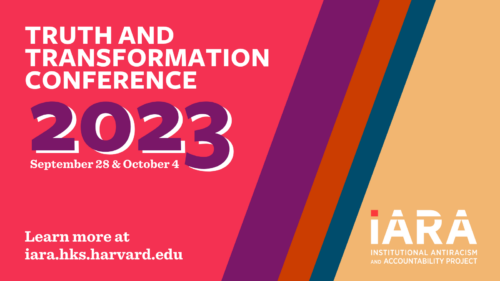
Video
Truth and Transformation 2023: Panel 2 — (Re)writing the Rulebook: Reporting and Regulating for Organizational Accountability
This panel was part of the Truth & Transformation Conference 2023, hosted by the Instructional Antiracism and Accountability Project (IARA). In this panel, we examined how tools like analysis, metrics, and reporting are advancing within the private sector today and explored the impact of government insight on transparency and accountability.
